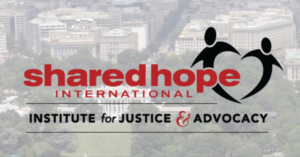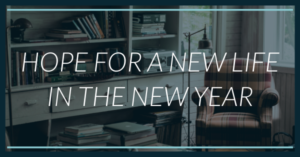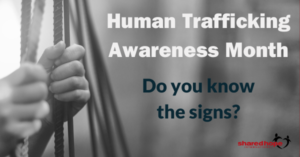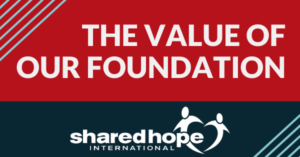
New center is a home for education, research and training of advocates and stakeholders in the fight to end sex trafficking and eliminate bias against victims.
WASHINGTON, Jan. 23, 2020 – Shared Hope International, a non-profit leader in the fight to eradicate domestic minor sex trafficking, today announced the opening of the Shared Hope Institute for Justice & Advocacy in Washington, D.C. Located just blocks from the White House, the Institute concentrates the power of Shared Hope’s collective resources under one roof and amplifies the voice of sex trafficking survivors from across the country. It offers education, research and training for advocates and stakeholders – including law enforcement, social workers, lawyers, first responders, doctors, legislators and judges – working to eliminate bias against victims in the ways laws are both written and applied.
Founded in 1998 by then-U.S. Congresswoman Linda Smith, Shared Hope has a two-decade history working to prevent domestic minor sex trafficking, supporting restoration for trafficking victims and bringing justice to the vulnerable people it impacts. The organization also ensures the buyers who create the demand for commercial sex with a child are brought to justice. In 2011, Shared Hope introduced the Protected Innocence Challenge, an annual state-by-state report card that identifies gaps in laws and provides a blueprint for legislative action.
“Opening the doors of the Institute for Justice & Advocacy marks a seminal event in our nation’s battle against sexual exploitation of minors,” said Smith, Shared Hope’s president and a member of the President’s Public-Private Advisory Council to End Human Trafficking. “In this space, advocates from across the country will come together to dig deeper, tackling current and emerging challenges and influencing federal legislation to better protect vulnerable women and children.”
The Institute for Justice & Advocacy became a reality after Shared Hope raised $3 million in five months to purchase the entire second floor of 1016 16th Street NW. It provides an on-the-ground presence and close proximity to the nation’s seat of power, giving Shared Hope a platform to influence the government and reach the entire nation.
American girls and boys are sold and bought for sex by men in the U.S. every day. It’s a heinous crime and an epidemic that exploits countless victims each year.
Shared Hope believes trafficked young girls and boys are victims who need to be protected, not treated as criminals or delinquent youth. The bias in our laws allows 20 states to label a child victim of trafficking as a prostitute and lets a buyer walk without legal consequence while their victim is charged with a crime.
“The word ‘justice’ in the Institute’s name is critical, as both buyers and sellers continue to escape justice and survivors are denied justice,” said Smith. “This fight starts with bridging the knowledge gap. If you care about protecting vulnerable children in communities across the country, we urge you to educate yourself and other people in your life.”
Today, Shared Hope International’s JuST Response Council will also release the report, “Responding to Sex Trafficking Victim-Offender Intersectionality: A Guide for Criminal Justice Stakeholders” in partnership with the Institute to Address Commercial Sexual Exploitation at Villanova Law. The report explores the phenomenon of victims facing criminal consequences for offenses that result from their trafficking, and provides tools criminal justice stakeholders can use to deal with cases in a just and trauma-informed manner.
To learn more about the Shared Hope Institute for Justice & Advocacy, visit https://sharedhope.org/what-we-do/bring-justice/
ABOUT SHARED HOPE INTERNATIONAL
Founded in 1998 by then U.S. Congresswoman Linda Smith, Shared Hope International strives to prevent the conditions that foster sex trafficking, restore victims of sex slavery, and bring justice to vulnerable women and children. A non-profit Christian organization, Shared Hope engages in diverse activities that confront sex trafficking in communities throughout America. Our efforts include training first responders and community members to identify warning signs of trafficking and employ intervention techniques to rescue child trafficking victims; providing restorative services to affected children and women; and offering legislative support to those focused on strengthening laws that fight child sex trafficking. Our vision is to coordinate a national U.S. network of protection to improve the response to victims of trafficking. We believe we can create a world where every survivor is surrounded by trained professionals, an alert community, just law and policy, knowledgeable service providers and appropriate shelter options.









